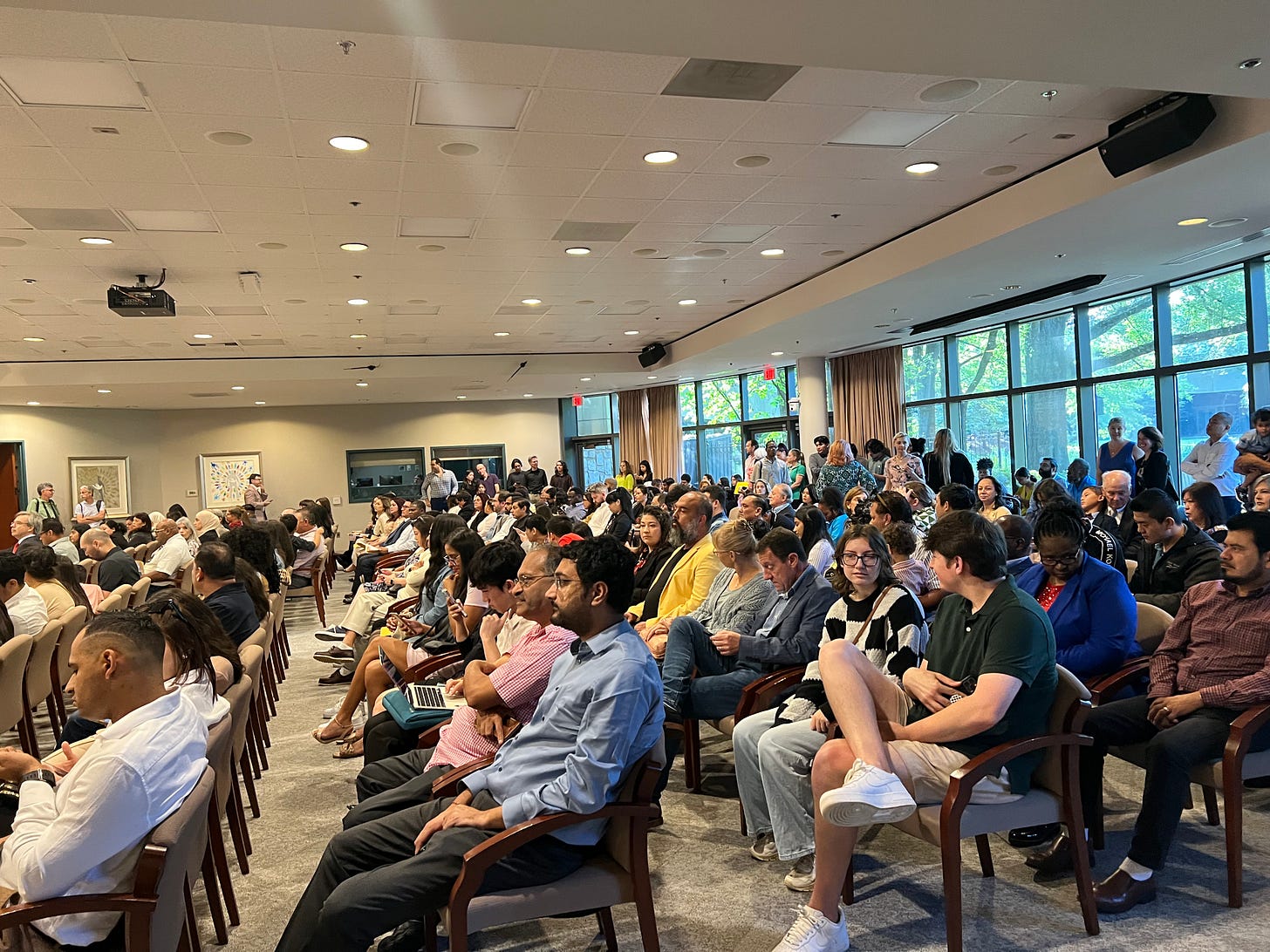It’s about to get more expensive to file immigration paperwork
Advocates and lawyers urge folks to get their immigration applications in before April 1, when fees will increase.

When Charles Kuck, an Atlanta based immigration lawyer, described how his clients reacted when they found out how much they would have to pay to file an application for a green card through marriage, he said, “they about peed their pants.”
Starting April 1, new U.S. Citizenship and Immigration Services (USCIS) fees for various immigration forms will go into effect. This means the total bill for his clients, a young couple, for all their required forms will go up from $1,760, which they had originally expected, to $3,580, said Kuck.
“They knew it wasn’t cheap, but it was shocking,” he said. Kuck has been representing clients for over 35 years on everything from applying for family-based green cards to asylum applications. He said his clients didn’t want to speak, out of fear of repercussions on their case.
USCIS announced updated fees for many of its applications in late January, which go into effect on April 1, 2024. The agency, which is mostly funded by filing fees, says the new rates allow it to “recover its operating costs more fully and support timely processing of new applications.”
But Kuck says “It's a massive money grab with no justification.” He acknowledged that the fee increase was less than what was first proposed, but, he said, “it’s still very bad.” He also wasn’t optimistic an increase in fees would lead to faster processing times.
“[They] can’t justify doubling the cost for [green card through] marriage.…No way [is it] related to the actual cost of doing the application.”
In an email response to 285 South, a USCIS spokesperson said that the fees help cover the cost of processing asylum applications, which are fee-exempt. “The fees for a particular form may include the unit cost of adjudicating that form, plus an additional amount to cover the USCIS non-adjudication overhead expenses. As part of that overhead, filers who pay the full fee may cover the agency’s costs to adjudicate fee-exempt, fee-reduced, and fee-waived cases.”
For an estimated 20,000 residents in Georgia who are Deferred Action for Childhood Arrivals (DACA) recipients who came to the U.S. as children without documents, fees have also gone up. They’re required to renew their status and work permits every two years. Starting April 1, that will cost $555 instead of $495.
Paulina Mejia, a DACA recipient based in Arizona and member of the national advocacy group United We Dream, says that an extra $60 can be a lot for many people. “Right now we are all experiencing a huge increase in cost of living…we have to keep in mind people are sometimes not even able to afford paying their essential bills.”
“I feel that this change, with fee increases, just adds on to the constant fear and anxiety we experience as DACA recipients,” she added. “It's a reminder that the program isn't secure, anything can change at any time, whether [its the] entire program or fees changing or eligibility. It’s just a reminder that DACA itself isn't enough and we need to push for a permanent solution.”
Immigration lawyers as well as advocacy organizations are urging people to get their applications in before April 1, if they can, before the new fees kick in.
“They should take advantage of the benefits that are available to current pricing,” said Kuck.
Here’s a summary of some of the fee changes.
DACA renewal applications will increase from $495 to $555.
Citizenship applications will increase from $640 to $760.
Applications for employment authorizations/work permits are going up from $410 to $520.
Green card applications are increasing from $1,140 to $1,540.
Applications for family members or beneficiaries of temporary agricultural workers (those with an H2A visas) will increase from $460 to $1090.
For more info on the fees for various applications, go to the USCIS website.




